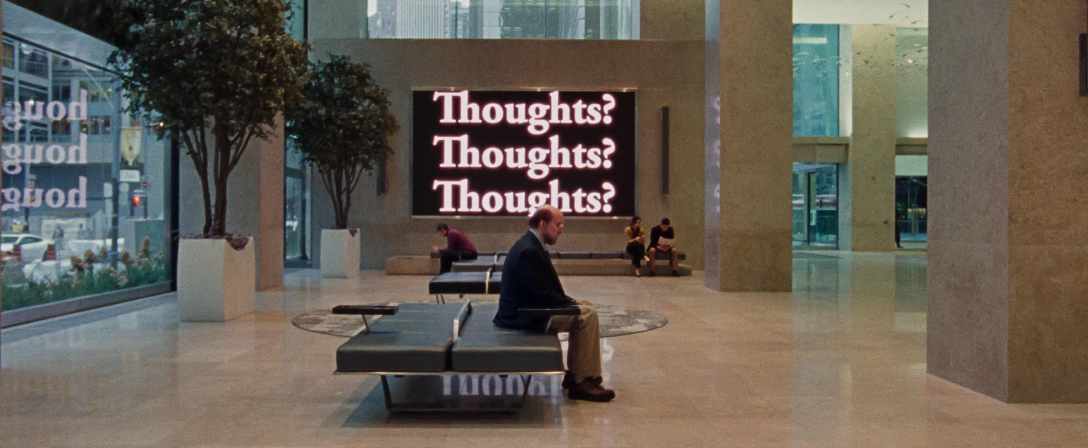Written and directed by Kristoffer Borgli
Fame’s for fools, especially foolish fame, and family man played by Nicolas Cage learns that fact real fast, although far too late, in Kristoffer Borgli’s Dream Scenario, a story with a peculiar premise it fails to do much with.
Paul’s a pretty average guy who’s honestly pretty successful by a lot of standards. He’s a tenured prof, and lives in a big house with a wife and kids who love him. But he feels small inside, like so many middle-aged men do, so he wants more.
Paul is someone to a few people, but he wants to be something to a lot of people. A desired dinner guests at the soirees of a friend whose table is frequented by intellectuals from near and far. Soirees he’s never scored an invite to. He wants to be seen as a strong, capable father by his kids. He wants to feel desired. He wants to be recognized by his peers.
Who doesn’t want these things? Dream Scenario wants to point at Paul as an particularly uncharismatic man, but he’s more of an everyman, so Dream Scenario connects to essential human desires. Any suspicion of a grounded exploration evaporates quickly, however, as Dream Scenario goes straight off the rails, as Paul becomes famous… for appearing in people’s dreams.
Not in any significant way. He’s often just there, looking, or walking through, but he quickly becomes a phenomenon. A bland presence for the world to, if not enjoy, then experience every night.
He becomes internet famous, which is the worst way to be famous, given the internet’s preference for the vapid and consumable to go with its appetite that only eats anything TikTok-sized. Paul can’t resist the temptation of notoriety, though, and the consequences are, you guessed it, severe, as Paul learns the lever he’s cranking for self-aggrandising is actually a double-edged sword and he’s already buried it to the hilt in his own ego.
Dream Scenario is about the fickle nature of fame, and as original the premise is, as unoriginal is the treatment of this same subject. The novelty of Paul’s dream-driven fame, which is its allure, is never looked into, it just is, and Borgli shrugs at this central tenet of his own story without lending it any real importance. It’s really just an engine to push the story along, so once you remove it, what are you left with? A fairly predictable misadventure of a mid-life crisis.
Paul’s dreamland escapades are just a vehicle for some arresting scenes that don’t add anything but minutes to Borgli’s movie. Many scenes are entertaining in their own right, but they don’t build towards a whole, they’re essentially just standalone gags that you’d expect from a Family Guy episode, although, to be fair, they’re not as drawn-out. Bless.
Dream Scenario is entertaining for its runtime, and Nicolas Cage delivers one of those performances he’s now uniquely capable of, portraying a worn-out man and indulging the ludicrous dream spectacles with equal enthusiasm and lack of self-awareness. He’s not one for dull parts, I don’t think he’s actually capable of it, and as dull as Paul is, there’s an intensity to his neediness that Cage is able to summon so well. Cage remains an uniquely talented and daring leading man in Hollywood.
Borgli’s film is easy to sit through because of its curious story and Cage’s committed work as this misguided dullard, and while there are laughs (and a few gruesome bits of violence) nothing’s really going to stick with you. Truly like a dream, you’d do well to write it down lest you forget once struck by any other fleeting impression.
